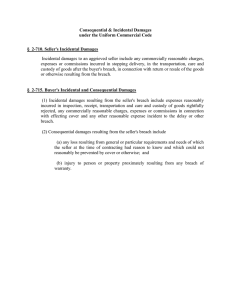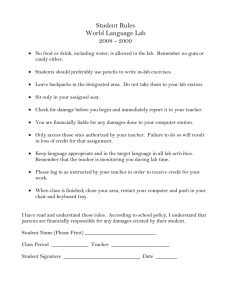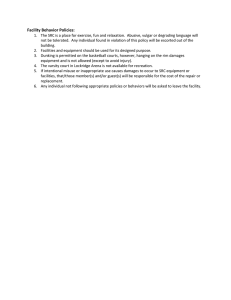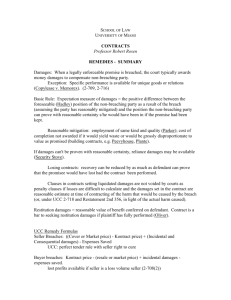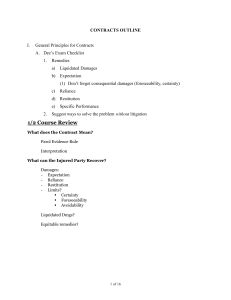Contract Damages Overview
advertisement
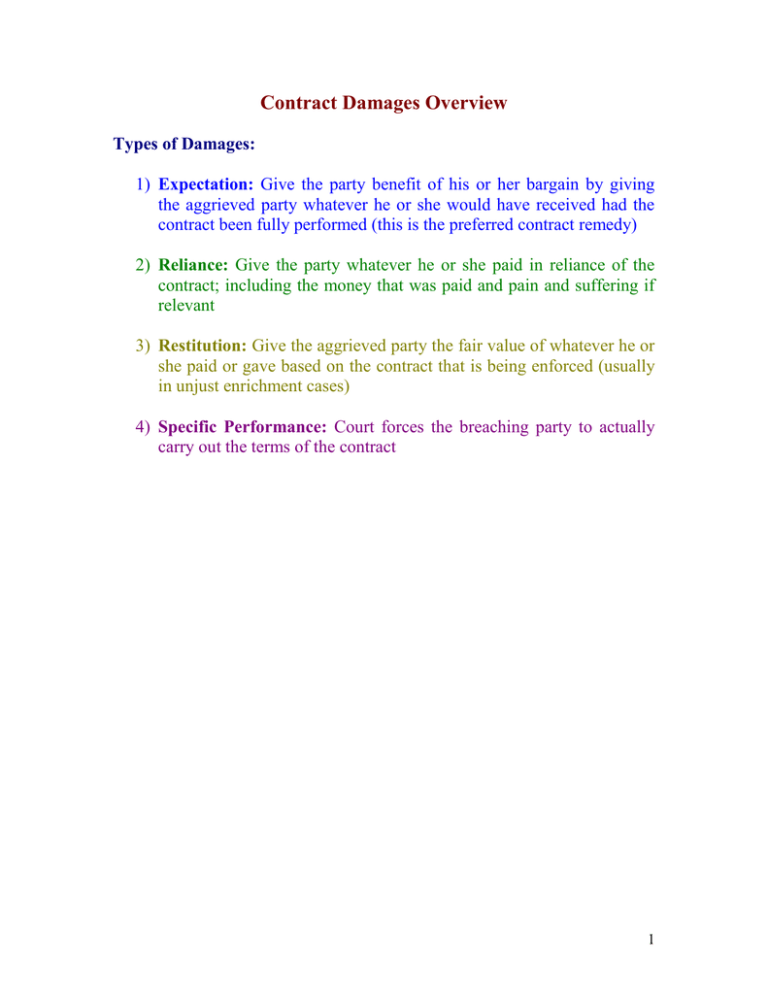
Contract Damages Overview Types of Damages: 1) Expectation: Give the party benefit of his or her bargain by giving the aggrieved party whatever he or she would have received had the contract been fully performed (this is the preferred contract remedy) 2) Reliance: Give the party whatever he or she paid in reliance of the contract; including the money that was paid and pain and suffering if relevant 3) Restitution: Give the aggrieved party the fair value of whatever he or she paid or gave based on the contract that is being enforced (usually in unjust enrichment cases) 4) Specific Performance: Court forces the breaching party to actually carry out the terms of the contract 1 Expectation Damages Key Point: Try to envision what the party would have had the contract never been breached in the first place Included in expectation damages: - Incidental damages sustained by the victim of the breach while trying to replace the performance called for under the contract - Consequential Damages: These include lost profits, as long as they: 1) can be predicted with reasonable certainty 2) were reasonably foreseeable to the parties at the time that the contract was executed Important: The costs that would have been incurred as part of the contract in any case are not recoverable because the victim of the breach knew that these costs were going to have to be paid in any case. 2 Expectation Damages - UCC Formulas If buyer breaches, seller can sue for: 1) Contract Price; minus Fair Market Value of the goods and the time and place that the tender was supposed to take place; minus Any transactional costs avoided because the sale is not happening; plus Incidental Damages suffered by the seller (§ 2-708) OR 2) Contract Price (but only if seller can’t re-sell the goods to someone else) If the seller does sue for contract price, he has to hold the goods for the buyer. (§ 2-709) If seller breaches, buyer can sue for: 1) “Cover” price (what the buyer paid for the goods from someone else; minus Contract price plus Incidental damages plus Consequential Damages (if foreseeable) (§ 2-712) OR 2) Market Value at time of Breach minus Contract price minus Any transactional costs avoided because the sale is not happening; plus Incidental or Consequential Damages suffered by the buyer (§ 2-713) 3 Ways that Expectation Damages Can be Reduced Failure to Mitigate: - A victim of a breach must try to mitigate damages by acquiring the sought performance from somewhere else, thereby minimizing the damages suffered; Thus: In UCC cases: o an aggrieved buyer must try to purchase the goods elsewhere o an aggrieved seller must try to re-sell the goods o exception: lost volume seller case In other cases: o An aggrieved employee must try to find a new job if unjustifiably fired, before suing for salary o A contractor must stop building if the customer cancels, so as to minimize damages Economic Waste Doctrine: - If it would make no economic sense to do what the contract calls for, a court can measure the damages so as to order something that makes economic sense and still gives the aggrieved party his or her expectation under the contract. 4
